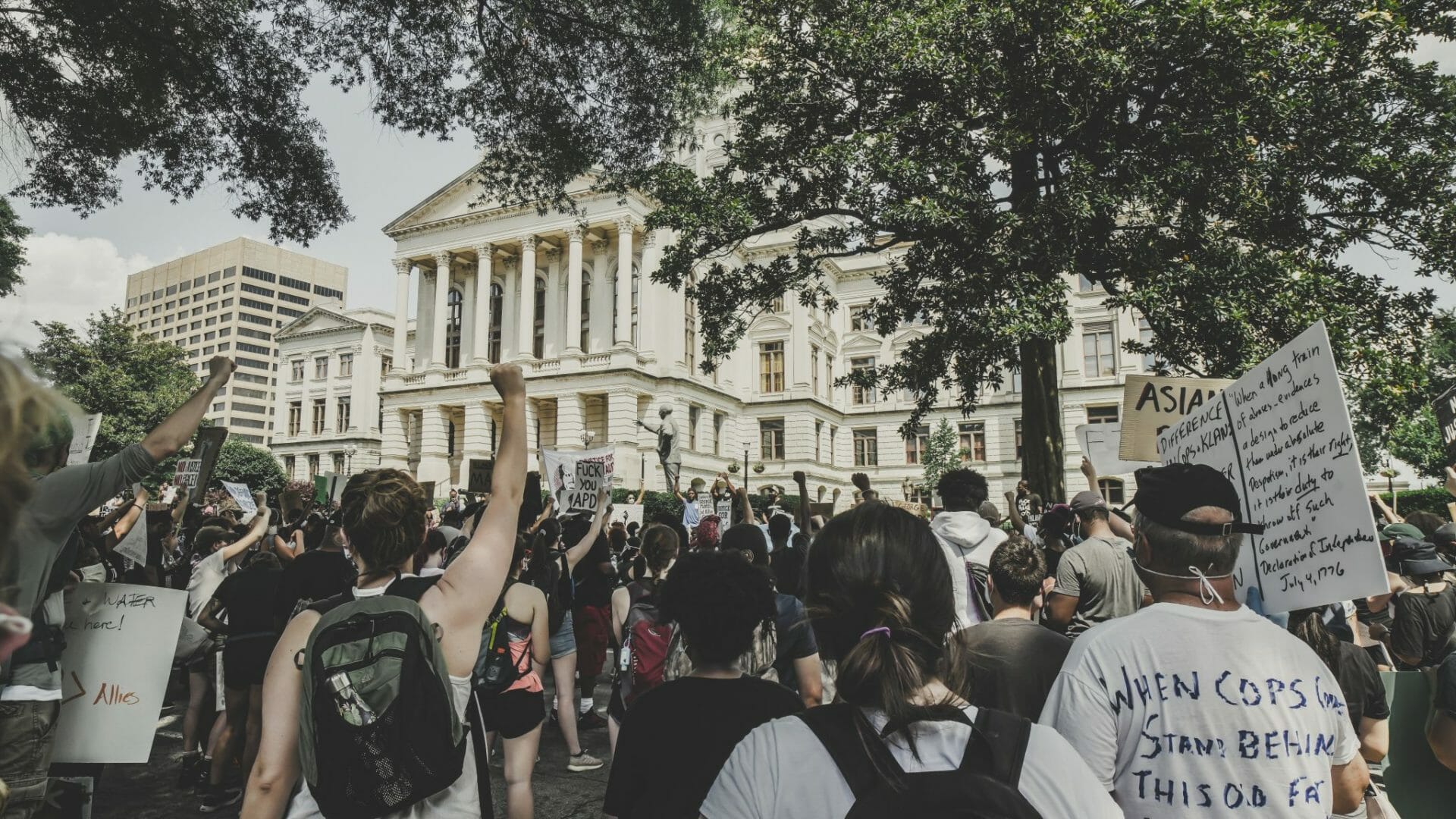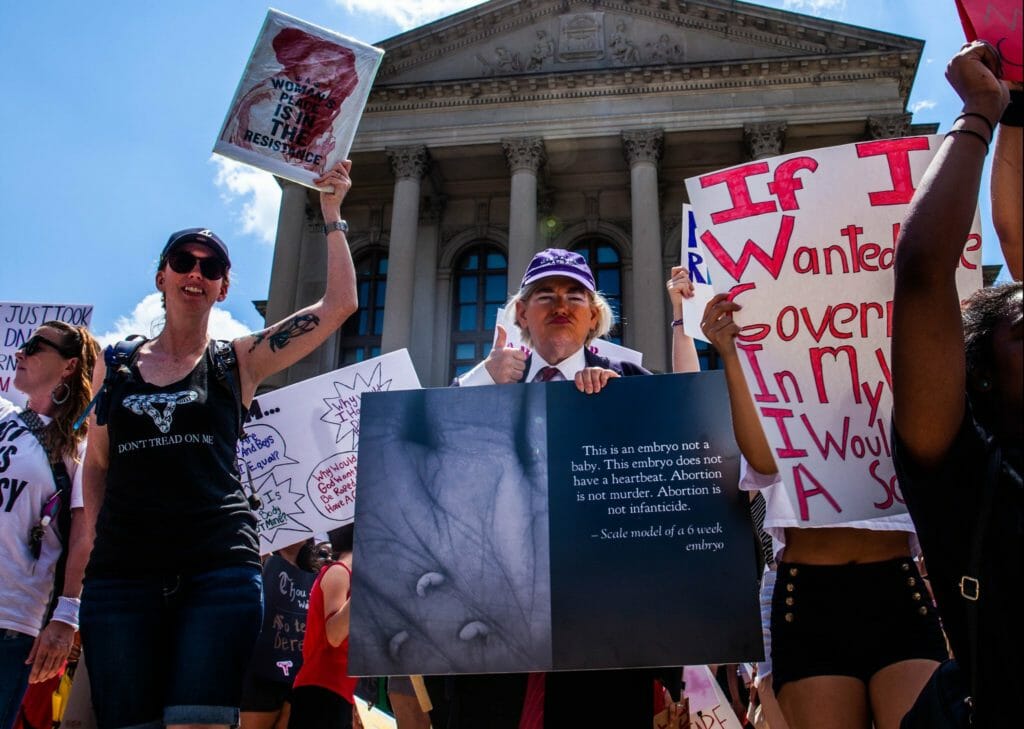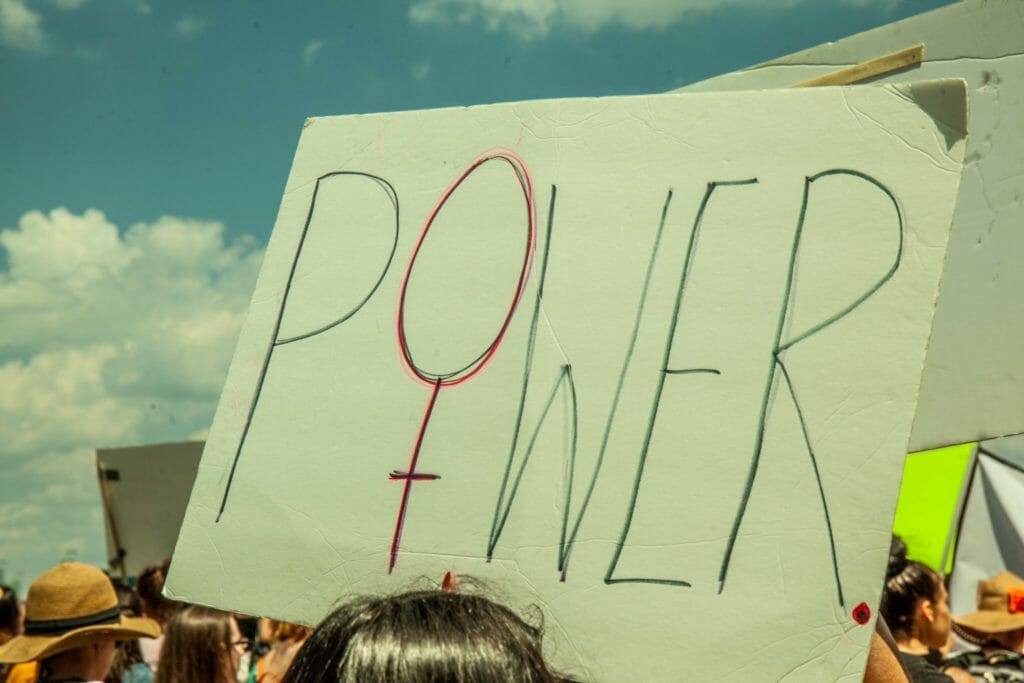While the officer’s criminal justice trial remains in limbo, the Atlanta Civil Service Review Board delivered its decision to reinstate Garrett Rolfe to the force where he is placed on administrative leave
ATLANTA — On Wed., May 5, the Atlanta Civil Service Review Board granted the termination appeal of Atlanta police officer Garrett Rolfe and revoked his dismissal as an employee of the Atlanta Police Department. Rolfe, 28, was swiftly terminated from APD last year after he fatally shot and killed Rayshard Brooks, 27, in a Wendy’s parking lot on the night of June 12. Rolfe was dispatched to the fast food restaurant in southwest Atlanta along with officer Devin Brosnan after the department received a 911 call that reported Brooks sleeping in his car in the parking lot.
Both officers have since been charged in the murder of Brooks, including a felony murder charge pending against Rolfe and an aggravated assault charge pending against Brosnan. Their trials currently remain at a standstill after newly elected Fulton County District Attorney Fani Willis wrote Georgia Attorney General Chris Carr in January in an attempt to have her and her office removed from the case. Carr denied her request and Willis remains the overseeing prosecutor.
While the Brooks shooting and city response garnered national attention, with news outlets looping hours of images of the south Atlanta Wendy’s burning, it was not the only incident of police brutality that occured in the city after George Floyd’s murder. On May 30, the second night of Atlanta’s protests, college students Messiah Young and Taniyah Pilgrim were on their way home after receiving an alert about a citywide curfew. The curfew began at 9 p.m. that evening, but public alerts (i.e. text messages to city residents) didn’t go out until 9:13 p.m. Although they were not involved with the protests, they were approached and assaulted by multiple APD officers while sitting in their vehicle.
Six officers were involved in the assault, including officers Ivory Streeter and Mark Gardner who had their appeal hearings with CSB earlier this year. Officer Amon Jones’ CSB hearing is to take place on May 20, while officer Lonnie Hood’s took place on April 29, with no decision delivered yet. The assault was captured on live television via 11 Alive news, capturing and streaming images of officers slashing the car’s tires and smashing its windows. Young was detained and hospitalized for injuries sustained in the encounter. Streeter and Gardner were fired the next day for their use of excessive force and later charged with aggravated assault. Two other officers were fired later, while the remaining two remained on the force.
It was reported in February that both Streeter and Gardner received back pay, meaning they were compensated for their time off the job. In addition to seeking recusal from Brooks’ case, District Attorney Willis sought to be removed from these cases, as well, and was also denied.
Rolfe’s hearing with the CSB took place on April 22 and the board’s opinion arrived today. The officer was represented by attorney and former cop Lance LoRusso in his appeal to the CSB, who also represented officers Streeter and Gardner in their appeals. You can view his opening statement in Rolfe’s appeal hearing here.
LoRusso, also known as the Blue Line Lawyer, became a cop in 1987 and worked in various jobs on the force for 12 years before going into private practice in 1999. He opened his own law firm in 2008, which represents first responders in various cases, including officer-involved shootings. According to an interview with Law Enforcement Today in April 2019, LoRusso’s firm had responded to over 70 “critical” incidents.
According to the Atlanta Journal-Constitution, attorney LoRusso said that Rolfe is “concerned his return to the force will lead to more division,” adding that Rolfe “loves this city.” Public records show that Rolfe currently lives in Temple, Ga., although he did have an address registered in Atlanta in September 2019. Prior to that, Rolfe was a resident of Dallas, Ga.
While Rolfe’s appeal has been granted, the APD has confirmed that he is to be placed on administrative leave. Further, the terms of his bond require him to not have contact with other APD officers, except in cases of emergency. His bond also prevents him from possessing a firearm and he remains on a curfew from 6 a.m. to 6 p.m. While the CSB’s decision reversed Rolfe’s termination, it is important to note that the board did not make a determination as to whether the officer violated APD policies. In light of the CSB’s rulings, APD will reportedly conduct an assessment to determine if additional investigative actions are needed.
An official statement from the board says, “The Civil Service Board (CSB) has reversed the termination of officer Garrett Rolfe only on the basis that they were not done in accordance with the Atlanta City Code.” In the example of Gardner’s appeal case, it was stated that the City “failed to perform several steps critical to [the] case and required by City Code.” These steps, according to the appeal order, include that the employee be given written notice of “adverse action” (in this case, termination) at least 10 working days prior to the effective date of the proposed adverse action; the employee must be given an opportunity to respond to the adverse action; the employee is “expected to perform usual duties without disrupting the activities of other employees or operations of the city department”; and more. The period in which an employee receives proper notification and is allotted time to respond is known as the employee response session.
From what we witnessed in the hearings, Rolfe pleaded the fifth while answering questions. Rolfe said that his union representative was never authorized to receive the paperwork for his termination and that he was “unable” to go to APD headquarters at that time. Following the shooting, Rolfe was advised to not enter the city limits for his own safety. Rolfe’s union representative was not present for the hearing, although the question as to whether or not they were authorized to act on Rolfe’s behalf appeared to be a key question.
APD’s policy manual, which fully outlines the department\’s standard operating procedures (SOPs), states that after the department determines an “adverse action” like termination, the employee should have five days to respond to a notice of proposed adverse action before being served with a notice of final adverse action, if they wish to respond. The city says that when it delivered Rolfe’s termination papers, his union representative claimed Rolfe didn’t want to respond. In his testimony, Rolfe said he didn’t authorize that to happen.
Moreover, according to testimony from Sgt. William Dean in Internal Affairs, the papers could have been taken to Rolfe by APD. Neither then-police chief Erica Shields or Assistant Chief Todd Coyt were present when Rolfe’s union representative accepted the papers on Rolfe’s behalf. While his defense argues that Rolfe didn’t get to have an employee response period, it could be argued that his union representative accepted those papers on his behalf, qualifying as the employee response period. However, since neither Shields or Coyt were present, that period became null and void, regardless of whether or not the union representative was authorized by Rolfe or not.
Of all the SOPs considered, the employee response period to the termination was perhaps the most crucial component of the hearing that ultimately led to the board’s decision to dismiss Rolfe’s removal from APD. The employee response period also appeared to be a determining factor in Streeter and Gardner’s cases. Throughout the hearing, the CSB listed numerous due process violations and cited those violations themselves as reasoning for overturning Rolfe’s dismissal. If the city had conducted the employee response period properly, there is a greater chance the dismissal would have been upheld.
Following the CSB’s decision, Rolfe’s father, Marty Rolfe, posted on his personal Facebook profile, tagging Rolfe’s mother Sheena Griggs Rolfe and stepmother Melissa Rolfe, that the family “won” with mention of “fully reinstated as Atlanta Police Officer with all backpay and benefits!!!!!!” [sic]. The post has since been taken down. Our research shows that Marty Rolfe was a Cobb County police officer, according to a 2003 case report, where he is listed by his full name, Marty David Rolfe. Public records indicate that Garrett and Marty David Rolfe have shared an address in Temple, Ga. It is unclear if Marty Rolfe is presently a Cobb County police officer.
Following the CSB’s opinion, the Atlanta Citizens Review Board (ACRB) sent out a press release statement clarifying the role of its organization, explaining that the ACRB is “not the Atlanta Civil Service Board (ACSB) and was not the agency that was responsible for the reinstatement of former Atlanta Police Officer Garrett Rolfe.” The statement goes on to explain that the ACRB is an “independent investigative agency of the city of Atlanta, authorized to receive, investigate, mediate, and adjudicate citizen complaints against Atlanta police and corrections officers” whose sole purpose is to “provide a forum for citizens to receive redress on their concerns about the actions of Atlanta police and corrections officers and community engagement.” The Atlanta CSB, on the other hand, handles “city employee adverse action that include suspension without pay, demotion, dismissal; removal from eligible list; disqualification for reemployment, failure to follow procedures of layoff or reduction in force; and unjust coercion or reprisal.”
It appears that CSB’s decisions in these recent cases are ultimately rooted in procedural errors, placing the onus on already corrupted standards of procedure in a poorly run police department rather than properly considering the harms caused by the officers. While Brooks’ shooting is what prompted Rolfe’s initial termination, it was not the first time he had received either citizen or department complaints, according to his disciplinary history. Rolfe was reportedly investigated a dozen times in less than seven years during his time as an Atlanta police officer. Additionally, it was reported by The Guardian last year that Rolfe was also accused of covering up another shooting in 2015, in which Jackie Harris was left with injuries. However, court papers showed the incident was not reported, nor was it included in initial police reports. According to Rolfe’s disciplinarity history with APD, that case has yet to be resolved.
Further, one of the officers involved in Young and Pilgrim’s assault was named in a 2016 excessive force lawsuit concerning the police murder of Jamarion Robinson. Despite the greater context and disciplinary histories of officers, it appears that in the current system, procedural errors in an already abundantly erroneous system took precedence in CSB’s decision to pave the way for officers’ reinstatements.
Mayor Keisha Lance Bottoms also released a statement defending the city’s decision to fire police officers after these incidents of police brutality, but her veto of even reform measures and her office’s links with the APD demonstrate a greater concern for tempering the climate within the city rather than addressing the harms caused by Rolfe’s and other officers’ actions. Since these traumatic incidents and the city’s mass protests, city government has done very little to support the victims or their families. Brooks’ widow, Tomika Miller, for example, learned of Willis’ attempt to recuse herself in a newspaper rather than from Willis personally. Moreover, the City of Atlanta has done very little to address its ongoing police brutality issue.
Atlanta activists gathered outside of Atlanta City Hall earlier this evening to protest Rolfe’s reinstatement. We will continue to report on these cases as they develop.




